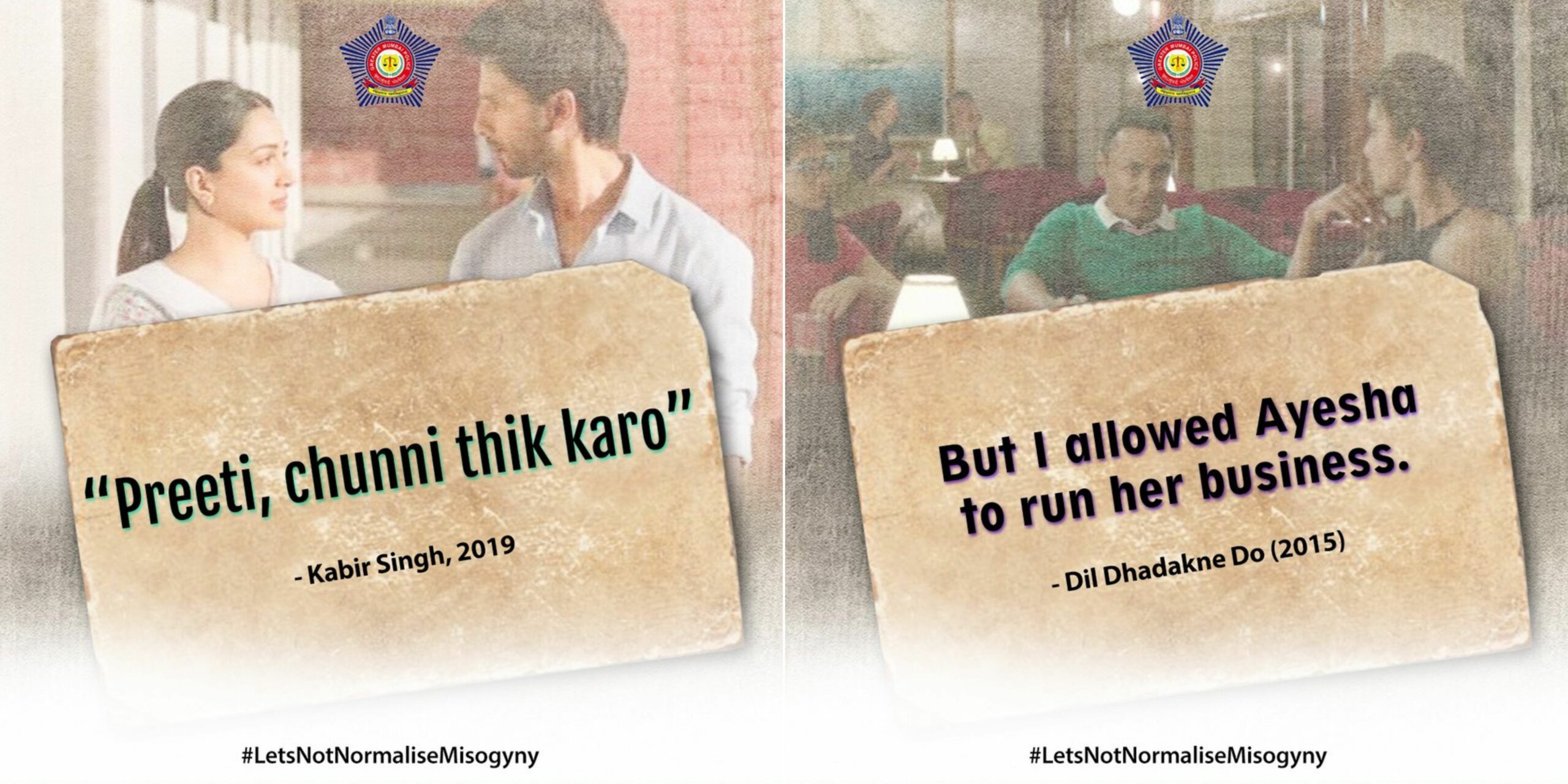‘Preeti, Chunni Thik Karo’: Mumbai Police Highlights Misogyny We All Need to Call Out
In a viral Twitter post that's winning praise from netizens, Mumbai Police called out Bollywood for dialogues from movies like Kabir Singh and Dabangg that mainstream misogyny in everyday language and actions. #LanguageMatters

Words can inspire. And words can destroy. Choose yours wisely. — Robin Sharma
As someone who is constantly told, “Relax, it’s not aimed at you,” I for one can relate to this. What about you?
In India, punchlines, dialogues and abuses often translate into sexist slurs that attack women. Interestingly, these are common lingual phrases that may or may not be directed towards a woman, but still use elements like gendered roles and anatomy as an expression of insult.
While on one hand, such slang grossly degrades women, on the other, it leaves the impression that to be associated with anything related to a woman is a matter of shame. Yet more often than not, people using this kind of language fail to realise its impact.
What enforces misogyny on such a deep level that one often fails to identify the contours of its existence?
In a recent viral Twitter post, Mumbai Police called out the Indian film industry for promoting stereotypical beliefs that are often reflected in society.
Cinema is a reflection of our society –
Here are (just) a few (of many) dialogues both our society & cinema need to reflect upon.Choose your words & actions with care – unless you want the law to intervene! #LetsNotNormaliseMisogyny#MindYourLanguage#WomenSafety pic.twitter.com/Shro2v9Qvx
— Mumbai Police (@MumbaiPolice) September 30, 2021
As a widely accepted representation of the country’s culture, Bollywood has a major impact on the way its audience perceives social quips and trendy behaviours. This is probably the reason why over time, careless dialogue has trickled into real life as misogynistic behaviour against women.
Narendra Nath Kalia, in his article ‘Women and Sexism’, points out how sexist language steers the collective consciousness of a society towards discriminatory behaviour, which often begins right at the schooling level.
In this light, the need of the hour becomes for all of us to realise the meaning of the words we speak. Who are they aimed at, and what impact are we looking to create through them?
Watch this video to understand why language matters:
If you found our stories insightful, informative, or even just enjoyable, we invite you to consider making a voluntary payment to support the work we do at The Better India. Your contribution helps us continue producing quality content that educates, inspires, and drives positive change.
Choose one of the payment options below for your contribution-
By paying for the stories you value, you directly contribute to sustaining our efforts focused on making a difference in the world. Together, let’s ensure that impactful stories continue to be told and shared, enriching lives and communities alike.
Thank you for your support. Here are some frequently asked questions you might find helpful to know why you are contributing?


This story made me
-
97
-
121
-
89
-
167











